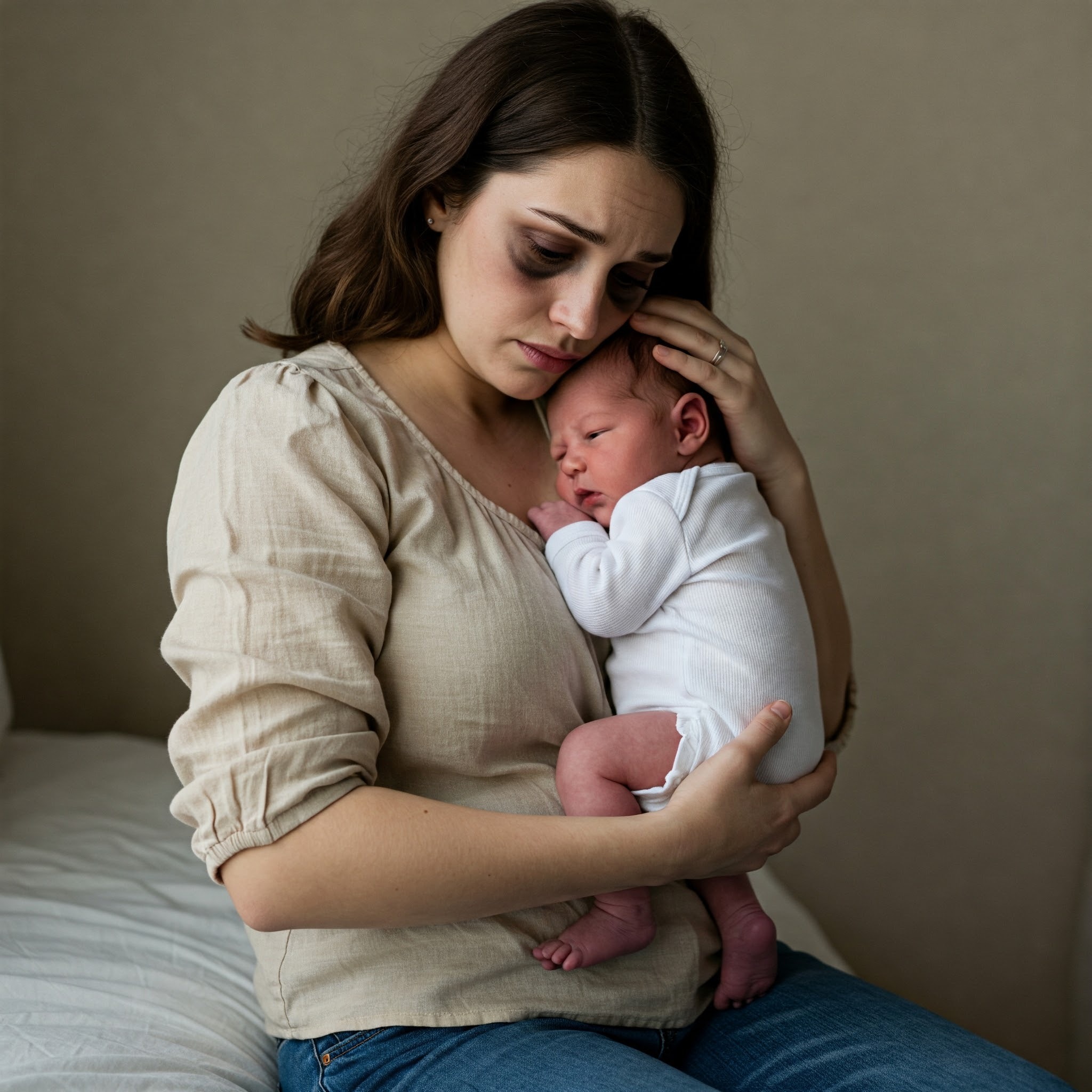Postpartum Depression
Compassionate postpartum depression care for new mothers
Expert support and treatment to navigate emotional challenges after childbirth
Navigating the postpartum period can be emotionally challenging, and at Neo-Woman Hospital, our Postpartum Depression (PPD) Clinic offers compassionate care for mothers facing emotional struggles after childbirth.
Postpartum depression, which affects many women after delivery, can vary from mild “baby blues” to more severe symptoms that interfere with daily life. Our team of trained therapists and mental health professionals specialize in postpartum depression treatment, offering therapy and support tailored to the unique needs of each mother.
We conduct thorough postpartum depression screenings to identify symptoms early and develop personalized treatment plans that may include psychotherapy, counseling, and support groups. Whether you’re experiencing sadness, anxiety, or difficulty bonding with your baby, our clinic ensures you receive the care and reassurance you need. We provide a supportive, non-judgmental space to help new mothers manage the emotional and psychological challenges of the postpartum period, fostering their mental well-being and promoting a healthier relationship with their child.


Neo-woman's postpartum depression clinic
Navigating the postpartum period can be challenging, and Neo-Woman’s Postpartum Depression Clinic offers specialized care for new mothers. Our clinic provides a compassionate and non-judgmental environment where mothers can receive treatment for postpartum depression (PPD).
With the support of trained therapists and counselors, we offer personalized therapy to address the emotional challenges of motherhood. Whether you are experiencing sadness, anxiety, or difficulty bonding with your baby, our clinic is here to provide the help you need. Early intervention and care are key to overcoming PPD, and our team ensures mothers receive the necessary guidance and support during this transformative period.
- Recognizing the symptoms of postpartum depression
Postpartum depression (PPD) is a mental health condition that affects many women after childbirth. While some emotional fluctuations such as the “baby blues” are common in the first few days after childbirth, PPD is more intense and long-lasting. Recognizing the symptoms early is crucial for effective treatment.
Common signs of PPD include persistent sadness, feelings of hopelessness, severe mood swings, anxiety, irritability, difficulty bonding with the baby, and changes in sleep and appetite. Physical symptoms such as fatigue and unexplained aches may also occur. If you notice these symptoms extending beyond two weeks after childbirth, it is essential to seek postpartum depression treatment near me or visit a postpartum depression treatment center for screening. Early detection and intervention through counseling or therapy are vital to improving mental health and overall well-being.
Here are some of the check up and health screenings that you should get done:
- Pelvic Exam
- Pap Smear (Cervical Cancer Screening)
- Breast Exam
- Blood Pressure Measurement
- Cholesterol Screening
- Bone Density Scan (DXA)
- Blood Sugar Test (Glucose Screening)
- Thyroid Function Tests
- Blood Count (Complete Blood Count, CBC)
* The specific exams and screenings recommended can vary based on a woman’s age, family history, personal health history, and risk factors. It’s essential to discuss your individual healthcare needs and screening schedule with your healthcare provider.
- Coping strategies for new mothers facing ppd
Dealing with postpartum depression (PPD) can be overwhelming, especially for new mothers adjusting to the demands of caring for their newborn. Coping strategies are essential for managing feelings of sadness, anxiety, and exhaustion. One effective method is reaching out to a postpartum depression therapist for professional support, which may include talk therapy or cognitive-behavioral therapy (CBT) to address negative thought patterns.
Regular physical activity, like short walks or light exercise, can also help improve mood by releasing endorphins. Practicing mindfulness and relaxation techniques, including meditation and deep breathing, can ease anxiety. Additionally, ensuring proper rest and asking for help from family members can alleviate stress. By incorporating these strategies, mothers can begin to regain their emotional balance and improve their mental health.
- The impact of postpartum depression on mother-infant bonding
Postpartum depression (PPD) can significantly affect a mother’s ability to bond with her baby. The emotional distance and sadness experienced during PPD can make it difficult for a mother to engage with her child, potentially leading to feelings of guilt or inadequacy. This emotional disconnect can impact both the mother and baby’s development.
Mothers may struggle with feelings of inadequacy, difficulty responding to their baby’s cues, or an overwhelming sense of being unable to care for their infant properly. Seeking postpartum depression therapy can help address these issues, improving emotional connections. Additionally, support from family, friends, and healthcare providers plays a key role in restoring the bond between mother and child. Early intervention, including therapy and possible medication, is crucial to improving the emotional connection and promoting healthier attachment during the early stages of motherhood.
- Therapeutic options for postpartum depression
When experiencing postpartum depression (PPD), there are several treatment options available to help mothers recover and regain their well-being. One common therapeutic option is counseling, such as cognitive-behavioral therapy (CBT) or interpersonal therapy (IPT), which helps address negative thoughts, manage emotions, and improve coping mechanisms.
Additionally, medication such as antidepressants may be prescribed by healthcare providers to balance mood and alleviate symptoms. For those seeking more structured support, postpartum depression treatment centers provide specialized care in a supportive environment. Postpartum depression treatment options are tailored to the individual’s needs, ensuring that both emotional and psychological aspects are addressed. The key is to seek help early through a postpartum depression therapist, so that recovery can begin as soon as possible, reducing the impact on the mother’s mental health and overall family dynamic.
- The role of support systems in postpartum recovery
Support systems are vital for mothers recovering from postpartum depression (PPD), as they offer emotional and practical assistance during a challenging time. Family and friends provide the necessary encouragement and understanding, helping mothers feel less isolated. A strong support network allows mothers to feel heard, validated, and less burdened by the demands of new motherhood.
Healthcare professionals also play a crucial role in recovery, guiding mothers through treatment options, including postpartum depression therapy or medication. Postpartum depression treatment centers offer additional resources and group support to help mothers connect with others who understand their struggles. Emotional and social support during this time fosters healing, helps manage stress, and promotes overall well-being. Building a reliable support system is an essential step in the recovery journey, ensuring that mothers feel empowered and supported throughout their experience with PPD.

Frequently asked questions
What are the signs of postpartum depression (PPD)?
Signs of postpartum depression (PPD) include persistent sadness, anxiety, trouble bonding with the baby, feelings of hopelessness, excessive fatigue, and changes in appetite or sleep patterns. These symptoms last longer than the “baby blues” and can interfere with daily life. If you experience these symptoms, seeking help from a postpartum depression therapist is important.
How long does postpartum depression last?
Postpartum depression can last anywhere from several weeks to several months, and in some cases, it may persist for longer. It’s important to seek treatment as early as possible. With proper care, including therapy and support, most women recover fully, although the length of recovery can vary from person to person.
What are the treatment options for postpartum depression?
Treatment options for postpartum depression include psychotherapy, medication (like antidepressants), and support groups. Cognitive-behavioral therapy (CBT) or interpersonal therapy (IPT) is often recommended. In more severe cases, medication may be prescribed to help manage symptoms, while support from family and friends plays a key role in recovery.
How is postpartum depression diagnosed?
Postpartum depression is diagnosed through a thorough evaluation by a healthcare provider, which typically includes a discussion of symptoms, a postpartum depression screening (like the Edinburgh Postnatal Depression Scale), and a review of your mental health history. Early diagnosis ensures the best outcomes for recovery.
Can postpartum depression affect my relationship with my baby?
Yes, postpartum depression can affect the emotional bonding between mother and baby. Feelings of detachment, irritability, or difficulty engaging with the baby are common. However, with therapy and support, mothers can work to strengthen this bond and overcome the emotional challenges of PPD.

Service line
Our locations
Neo-woman clinic
Apte Road
1212, Apte Rd, opp. Centro Hotel, Shirole Road, Shivajinagar, Pune, Maharashtra 411004
Contact us at: 9423039292
Our locations
Neo-woman clinic
Hadapsar
Gandharva Empire, 3rd floor, Above Fab India, Raskar Chowk, Amanora Park, Hadapsar, Pune, Maharashtra 411036
Contact us at: 7030114488
Copyright © 2026 neo-Woman – all rights reserved.
:::| powered by dimakh consultants |:::